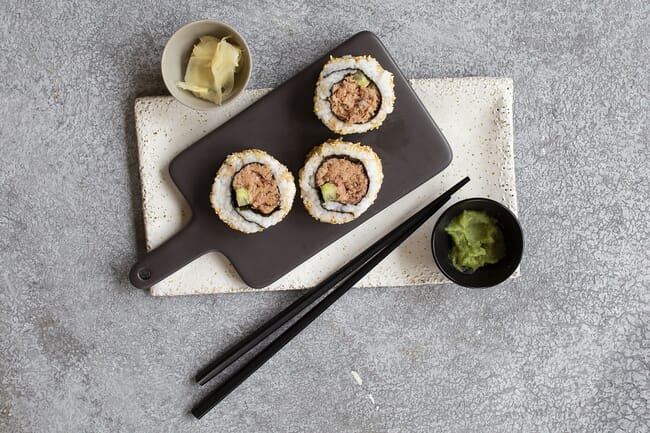
© GoodMills Innovation
GoodMills Innovation claims that the texturates – which are made from wheat, soy and peas – are “Ideal for the production of fish alternatives such as tuna substitutes and vegan versions of fish fingers, pan- or deep-fried fish”.
“From a sensory point of view, end products based on Vitatex are particularly convincing due to their authentic fibrous texture. The high protein content adds nutritional benefits and, thanks to the high water-binding capacity of the texturates, individual consistencies can be created. In addition, they add texture and structure to both convenience and hybrid products. Products made with Vitatex are optimally suited for the frozen food sector,” claims the company in a press release.
The plant-based market is skyrocking, with vegan seafood in especially high demand, according to GoodMills.
They point to a survey from ProVeg International, in which 85 percent of respondents who follow a solely plant-based lifestyle report a lack of on-shelf choices, especially when it comes to seafood alternatives.
“Whether it’s fish & chips, fish fingers or fishcakes, all of these specialities can be readily converted into vegan form with Vitatex,” the company claims.
During the past decade, the company has develoepd a range of wheat texturates. By implementing new extrusion technology and adding soy and peas to its raw material portfolio, GoodMills Innovation claims to have raised the sensory quality of fish and meat substitute products to a new level.



